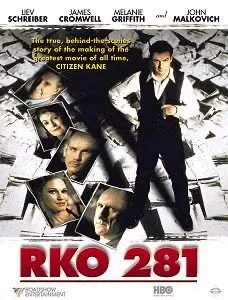Director: Benjamin Ross
Cast: Liev Schreiber, James Cromwell, Melanie Griffith, John Malkovich
Have I Seen it Before: I was probably the only 15 year old on the planet who practically gasped when he saw an ad for the film on HBO, and then ensured he stayed home on a Friday night to watch it as it first aired. It was shortly after first seeing this film that the idea occurred to me of trying to graft a fantastical adventure onto the War of the Worlds broadcast. Twenty-plus years later, I’m just now culminating those flitting ideas that this movie put in my head.
Did I Like It: Ultimately, trying to force this story, with all of the implications for Welles (Schreiber) future and the support of Hearst’s (Cromwell) life diminishes things a little bit. Despite ominous hints that he’ll never top the achievement of Citizen Kane (1941), it largely paints Welles as triumphant at the end of the picture. Mank (2020) tries its level-headed best to take Mankiewicz’s (Malkovich) side in the conflict. The Battle Over Citizen Kane (1996) covers the topic more thoroughly, and more hauntingly.
But I can’t not love this film. So many depictions of Welles depict him as a pillar of pure—some times tragic, sometimes conniving—genius. This film occasionally has the gall (let’s face it, honesty) to depict him as a fairly young kid who can’t help but doubt his own ability to get the job done. That makes Welles as depicted by Schreiber feel close to what I imagine a twenty-five year old kid with self-destructive impulses given the freedom to do whatever he wanted in Hollywood, however briefly. That feeling helps to offset the unavoidable reality that of all the people to depict Welles on film, Schreiber looks and sounds like the imminently recognizable Welles the least. Come to think of it, only Cromwell and Griffith have any resemblance to the people they depict. Does it really count as a weakness? By all rights it should take me out of the film, but the proceedings manage to hold up just fine.

